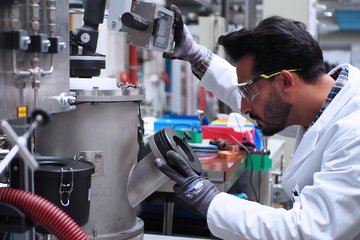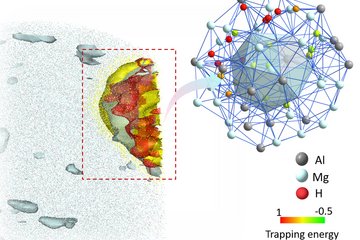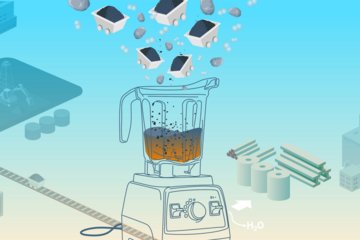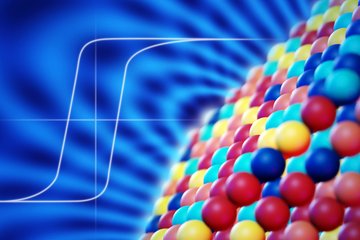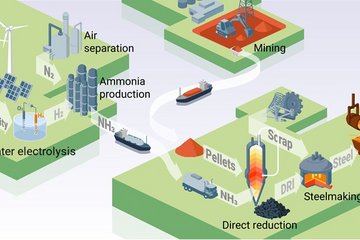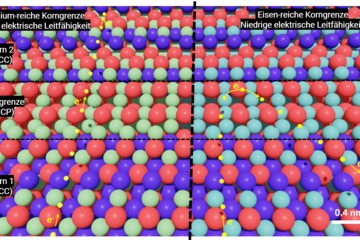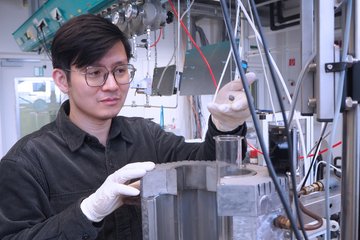Alle Typen
21.
Vortrag
Probing interfacial layer thickness and electronic properties of electrochemical interfaces: The example of oxide on zinc. 112th Bunsentagung (Annual German Conference on Physical Chemistry), Karlsruhe Institute of Technology (KIT), Karlsruhe, Germany (2013)
22.
Vortrag
Investigation of electrochemical oxide growth on zinc by spectroscopic ellipsometry: An example of in operando spectroscopy. EMNT 2012 - 9th International Symposium on Electrochemical Micro & Nanosystem Technologies, Linz, Austria (2012)
23.
Vortrag
In-situ ellipsometric monitoring of electrochemical preparation of ZnO nanoplates. 62nd Annual Meeting of the International Society of Electrochemistry, Niigata, Japan (2011)
24.
Vortrag
Fabrication of Iso-oriented Gold Nanobelt Arrays from an Fe–Au Eutectoid. 9th International Conference on Nanostructured Materials, Rio de Janerio, Brazil (2008)
25.
Vortrag
Metal nanowire growth by directional solidification of eutectics. ICON 2007 ( International Conference on One dimensional Nanostructures), Malmö, Sweden (2007)
26.
Vortrag
Gold Nanostructures through directional Eutectoid Transformation. EUROMAT 2007, European Congress and Exhibition on Advanced Materials and Processes, Nürnberg, Germany (2007)
27.
Poster
Investigation of oxide growth on zinc by spectroscopic ellipsometry. ENFI 2011, Linz, Austria (2011)
28.
Poster
Finite element analysis of surface enhancement in surface enhanced attenuated total reflection infrared spectroscopy. ENFI 2011, Linz, Austria (2011)
29.
Poster
Electrochemical treatment of Zn: An in-situ spectroscopic ellipsometry investigation. European Conference on Surface Science, ECOSS28, Wrocław, Poland (2011)
30.
Poster
Real-time investigation of ZnO growth on Zn by spectroscopic ellipsometry. 3rd NanoCharm Workshop on Non-Destructive Real Time Process Control, Berlin, Germany (2010)
31.
Poster
Electrochemical Release of High Aspect Ratio Gold Nanobelts from an Fe-Au eutectoid. Bunsentagung 2008, Saarbrücken, Deutschland (2008)
32.
Poster
Gold Nanostructures through Directional Eutectoid Transformation. 92. AGEF-Seminar DFG-SPP 1165, „Elektrochemische Aspekte von Nanodrähten und Nanoröhren“, Düsseldorf, Germany (2007)
33.
Hochschulschrift - Doktorarbeit
Gold Nanostructures born from the Fe–Au Eutectoid: Electrochemical and Physical Investigations. Dissertation, Ruhr-Universität-Bochum, Bochum, Germany (2009)

